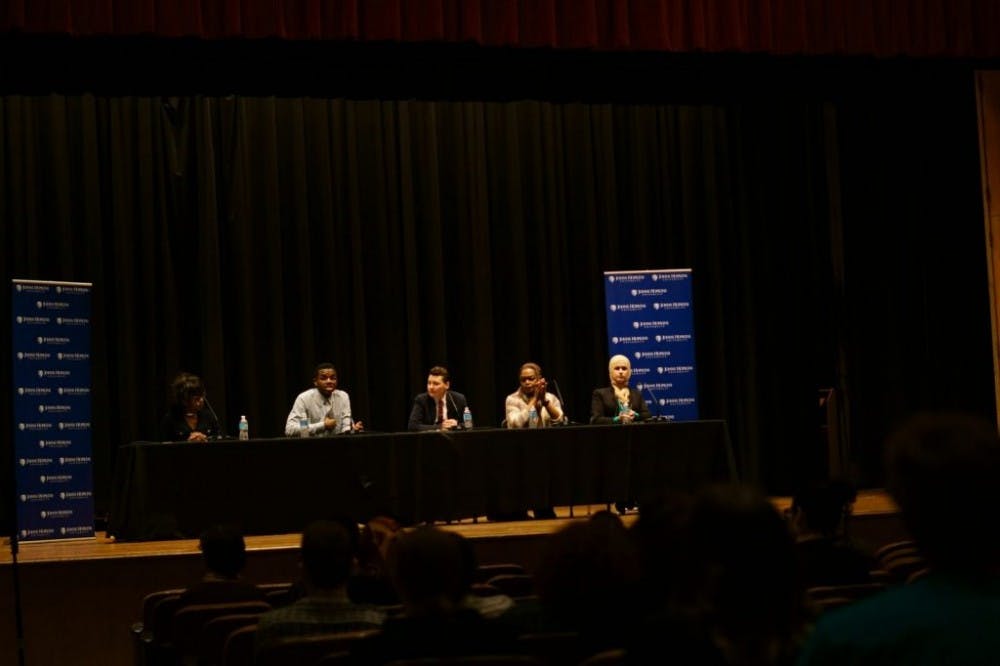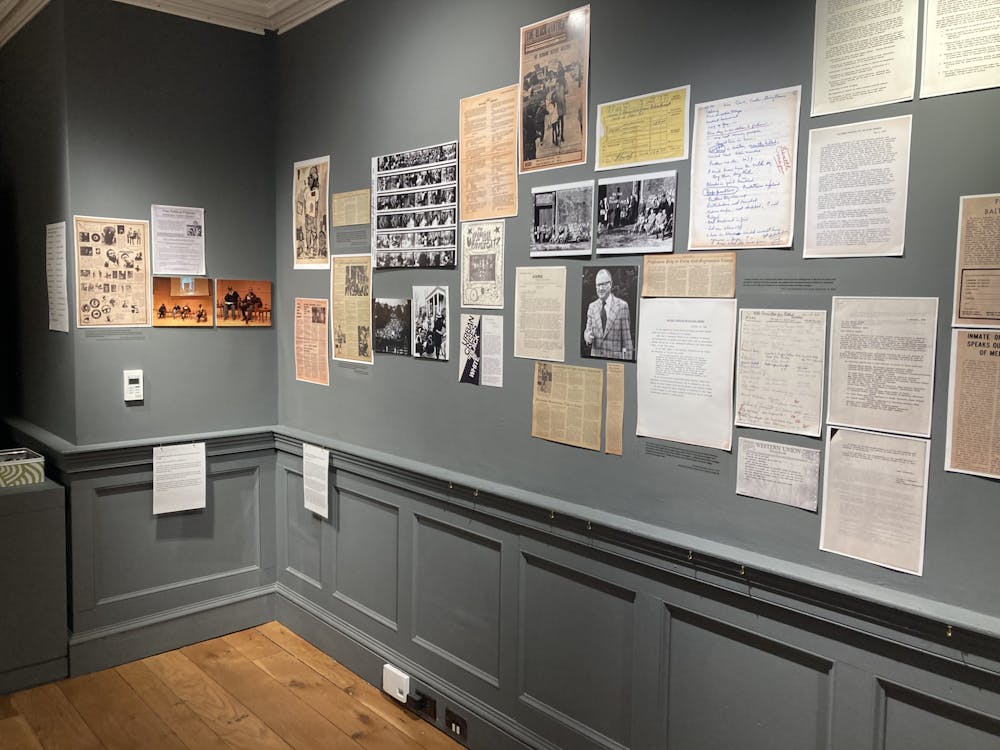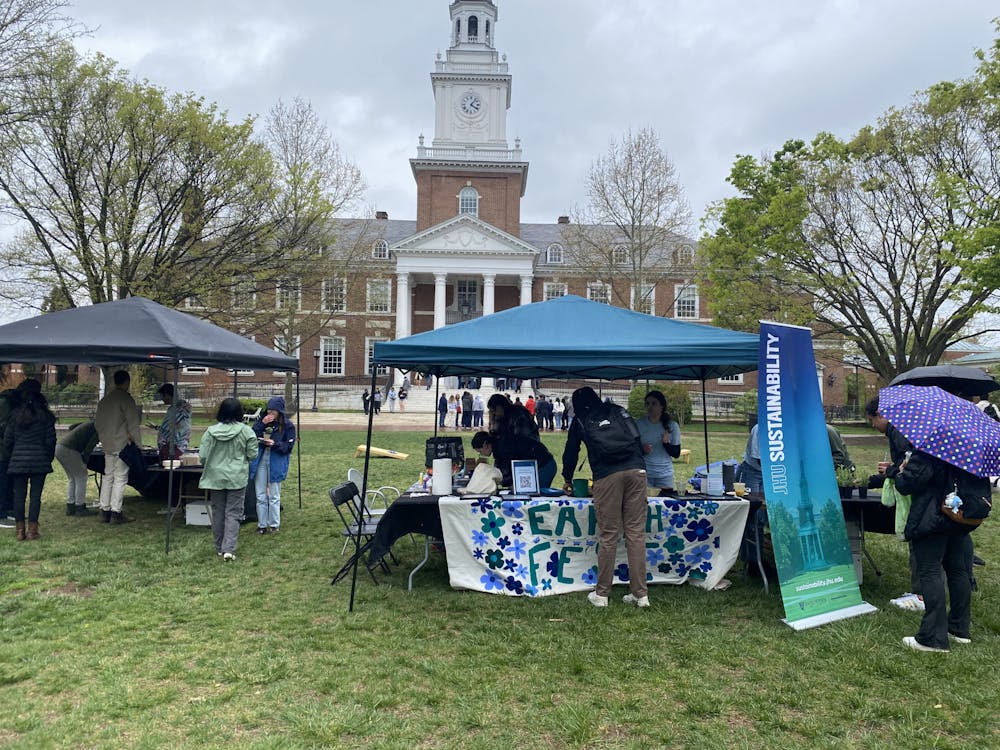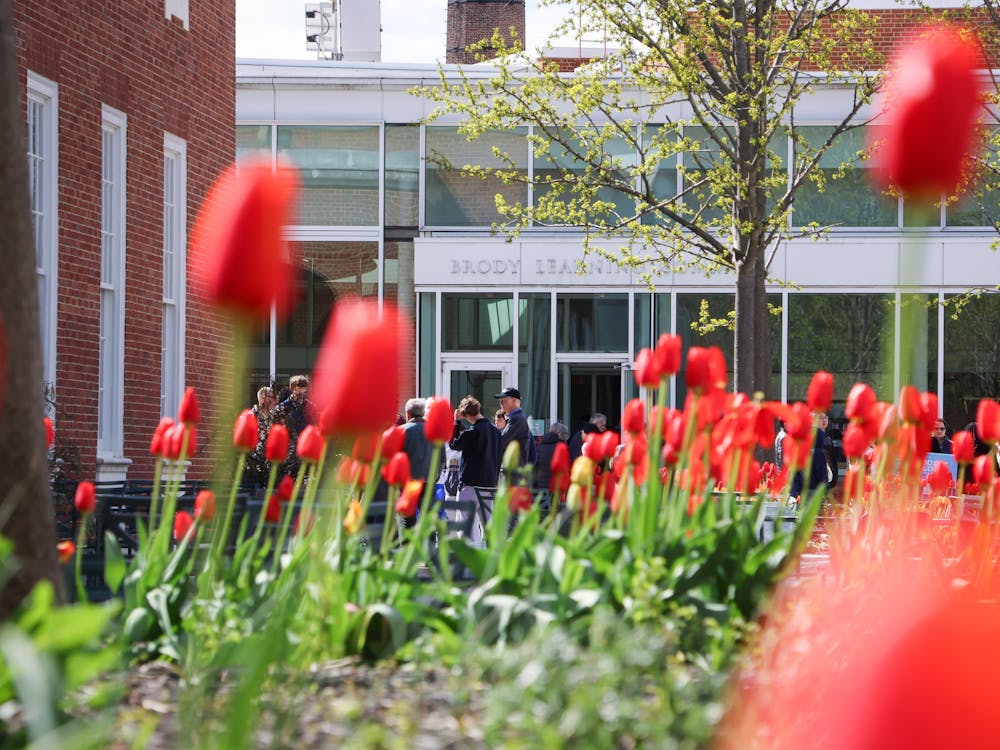As a part of the Forums on Race in America series, the Office of the Provost hosted “A Discussion of Intersecting Dimensions of Identity,” featuring panelists who discussed their experiences as underrepresented minorities and the necessity for activism.
The discussion took place on Tuesday in Shriver Hall and was moderated by Norma Day-Vines, a professor in the School of Education.
Payton Head, who was one of the panelists, was the former student body president at the University of Missouri (Mizzou) as well as the leader of the 2015 Mizzou protests that led to the resignation of their university president. He talked about the challenges of being both black and gay.
“I didn’t know how I was able to tell my family I was gay. Sexuality was something I was bullied for and I knew that someday I would have to come into my own and recognize that I’m powerful; I’m wonderful just the way I am. I felt like I didn’t fit in with the black kids,” he said. “I felt that I was too gay for the black kids and too black for the gay kids.”
He described his initial apprehension to run for a position in student government.
“I remember having this feeling of a really nasty pit in my stomach throughout the entire election process because I really didn’t think I could do it, and people looked at me like I had the audacity to try,” he said. “[My vice president and I] came together, and we decided to embark on this mission that wasn’t quite completed before: to be the first black elected student leaders at the University of Missouri, together on one ticket.”
He explained what pushed him to run in the end.
“We really decided to embark on a campaign that would create conversations about the changes that needed to happen on campus for every single type of student,” he said.
Mo Speller, a transgender Ph.D. student in the History department, researches the male-biased history at Hopkins and the importance of creating all-inclusive bathroom spaces. He began by speaking about his own experiences with restrooms.
“Bathroom spaces as a trans person at Hopkins — who in other contexts has faced physical threats because of my gender expression — can be anxiety-provoking for me,” Speller said. “In being attentive to bathrooms, I started thinking about other types of people that are excluded on campus implicitly by the bathroom access that we have available.”
Speller went on to outline how Hopkins began adding women’s restrooms to buildings after it became co-ed.
“One of the big things that I noticed was how much the history of Hopkins as being an all-men’s college is very much alive and well in terms of some of the buildings,” Speller said. “The women’s restrooms are kind of inserted as an afterthought, or there’s not as many women’s restrooms as men’s restrooms.”
Another point he raised was how many of the bathrooms are not accommodating to those who have disabilities.
“Many of the major institutional buildings don’t have basic ADA [Americans with Disabilities Act] compliance in most of the bathrooms,” he said. “These things helped me to consider my privilege as an able-bodied person... and to think about the different ways that these very basic kinds of accommodations can make people feel excluded on campus or hinder the work of learning.”
Panelist Monica Yorkman, who is a co-founder of the Baltimore Transgender Alliance and is also black and transgender, stated that her work was inspired by many instances of injustice she faced throughout her life.
She spoke about her initial challenges in confronting her own identity.
“There were all these instances in my life that left my parents confused about me, [but] I was never confused about me,” Yorkman said. “The only thing that caused confusion about me was never having the language to understand me and fighting against systems that left me not being able to advocate for myself.”
This hesitation changed as she learned more about the hardships experienced by those like her.
“It wasn’t until [I was] almost dying [when] I finally found the voice and courage to advocate for myself,” she said. “Then [I] found myself in situations where I advocated for others, because I found that others were dying at an earlier age than me — through violence, through discrimination and through lack of opportunity. There’s something that burns in me that just says that there’s something wrong with that picture and needs to change.”
Panelist Laila Alawa is the founder of The Tempest, a company that connects female leaders around the world. She is also a Muslim-American who came of age during 9/11. Alawa has faced physical threats and harassments throughout her life because of her religion. She explained what it was like being an oppressed minority, or the “other” in society.
“I have been visibly ‘other’ since [I was] ten years old,” she said. “American Muslims have dealt with Islamophobia whether they are immigrants [or not]. This reality of being visibly ‘other’ led to my understanding that the world was something that I had the ability to really do something about.”
She spoke about one specific incidence during her time studying at Wellesley in which she almost was not allowed to go on a research trip because of her headscarf.
“It was in that moment and in that trip that I realized that I have to keep proving myself as a good Muslim woman and dealing with these BS stereotypes [that others are] imposing on me,” she said. “If I tell you this is who I am, then deal with it.”
Alawa also described her experience in pitching a story to The Huffington Post about the feminist protests that took place after the 2013 Boston Marathon Bombings. Throughout this article, she realized the impact that social media could have in spreading her message.
“What you see now on a day-to-day basis is that social media and media have become one, and that media quite literally is shifting the future of policy, politics, culture, and it’s interwoven,” she said. “My purpose is to democratize access to voices that we don’t really hear from and do it while being mainstream.”
The speakers were also invited to speak about millennialism and its influence on activism. Yorkman, who is not a millennial, emphasized the weight she believed millennials now carry.
“[Millennials] are not as uptight about gender and racial kinds of things in general. But what happens is [that] in other communities they run into and in other communities that they meet, they run into a lot of resistance,” Yorkman said. “Millennials are going to have to carry the torch in the time where I thought millennials would enjoy the benefits of elders.”
Head additionally emphasized that millennials now have a responsibility to work towards a truly equitable society.
“I think for millennials, we have to recognize that we stand on the shoulders of somebody who has done this work,” he said. “I think understanding the systems of oppression that exist, and... many of us have the opportunities to be in these educational institutions where we can learn about our pasts and use it as fuel to teach us how to create a more equitable future for all of us.”
Head specifically spoke about the role of universities in bringing about change.
“I [was told once] that racism and this idea of exclusion is one of the most viral and biggest diseases that we have in our nation,” he said. “What if we treated universities like hospitals to cure racism? It’s on us now more than ever to make these societal changes.”
















Please note All comments are eligible for publication in The News-Letter.